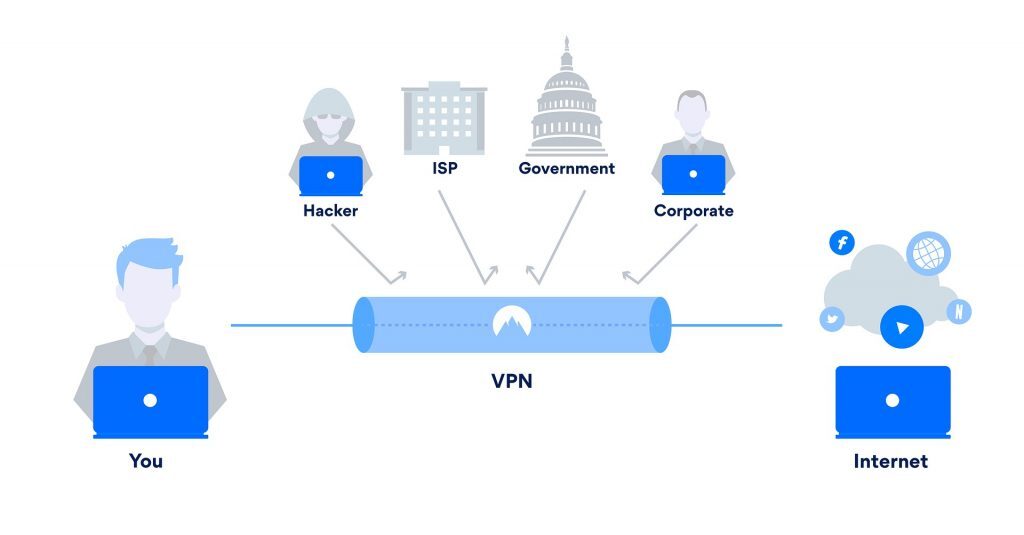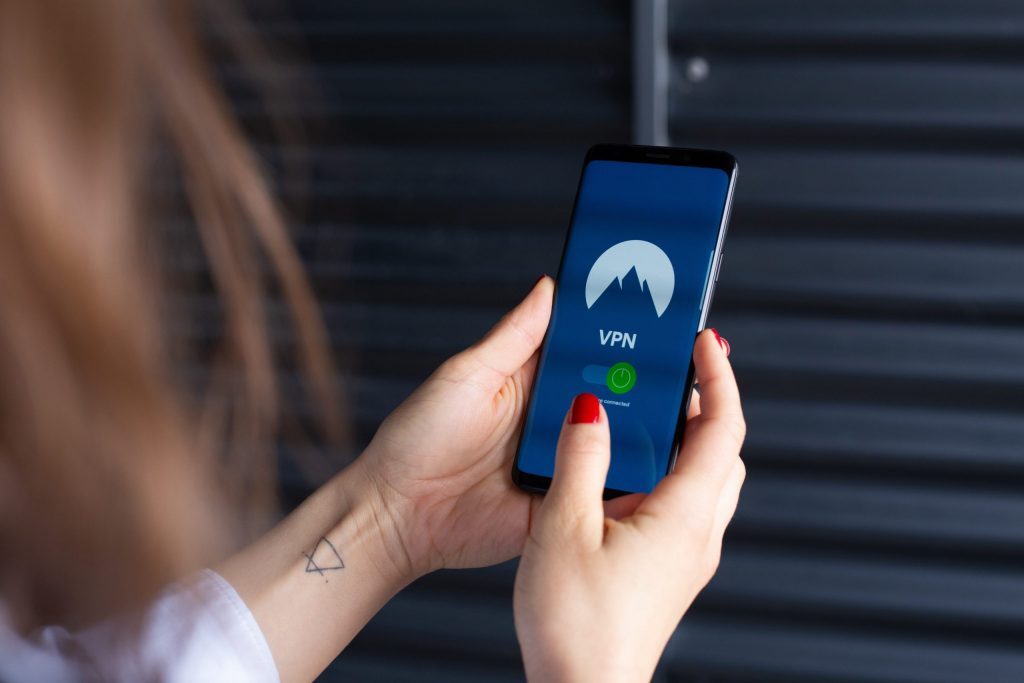You might feel like you missed the VPN hype that spiked in the pre-local-Netflix years when getting good shows meant some jumping through digital hoops. That’s a good thing, though, because many more VPNs have appeared on the scene since, which means more options. But first, what is a VPN?
A ‘virtual private network’ (VPN) is used to protect your privacy when browsing on public networks. It’s normally a paid-for service (you don’t really want to use the free ones… remember, if it’s free, you’re the product) and it conceals the connection between your device and the wild west that is the internet. VPNs can also get past regional restrictions for video- and music-streaming sites (well, most of them) and help you evade government censorship restrictions.
Essentially, a VPN creates a secure tunnel between your PC and the websites you visit on the internet. The tunnel connects you to the VPN host’s server, which might be located in your home country, or might be elsewhere. A good VPN will have lots of servers in diverse locales. Your activity on the interwebs then passes back and forth through that server. The end result: as far as most websites are concerned, you’re browsing from that server’s geographical location and not your actual location.
 Moreover, once you’re connected to the VPN it becomes very difficult for anyone else to spy on your web-browsing activity even if they intercept it… because it’s encrypted. The only people who will know what you’re up to are you, the VPN provider (usually an HTTPS connection can mitigate this, though, and a good VPN won’t keep any of your activity on file, nor will it have any way of identifying you), and the website you’re visiting.
Moreover, once you’re connected to the VPN it becomes very difficult for anyone else to spy on your web-browsing activity even if they intercept it… because it’s encrypted. The only people who will know what you’re up to are you, the VPN provider (usually an HTTPS connection can mitigate this, though, and a good VPN won’t keep any of your activity on file, nor will it have any way of identifying you), and the website you’re visiting.
But why do I need a tunnel?
Let’s say you’re on a public Wi-Fi network at the airport, or at Wimpy, or wherever really. It’s pretty easy for someone to create a fake Wi-Fi hotpot with the same name and intercept all traffic. That means not only could someone pick up sensitive info like your passwords for online services, but they could even redirect you to a phoney banking site and get your details that way. If you’re running a VPN, though, they won’t be able to intercept any of your data in transit. As for fake websites, well, you’ve gotta stay attentive and look out for those. But at least you’ll know no one is spying on you, and even your internet service provider (ISP) won’t be able to track which websites you’re visiting… that should also mean fewer targeted ads. Hurray!
On top of all that, you get the benefits of spoofing your location. If you’re in South Africa and the VPN server is in the US, it will look to most websites like you’re browsing from there, not the bottom end of Africa. Ever wanted to use BBC’s iPlayer? Pick a UK server and off you go.
Be warned, though, while some regionally restricted websites and online services can be fooled by a VPN, others like Netflix do a pretty good job of spotting VPN connections and rejecting them.

If you plan to visit or live in China and want to make sure you can post that Great Wall selfie to Insta (which requires getting around the country’s advanced online censorship system known as the Great Firewall), you’ll need a VPN. The problem is not all VPNs work in China. If this is an essential feature you’ll need to pick a VPN that works in the region. Your best bets are NordVPN, ExpressVPN and Surfshark, which all work in China.
Which tunnel do I choose?
We know everyone loves free services, but unfortunately, you won’t want to skimp on a VPN. There are free VPNs that use an ad-supported model, but that means they’re likely harvesting your data and selling it as ‘marketing insights’ to advertisers… which is one of the practices paying for a VPN will help you avoid.
Luckily, VPNs aren’t expensive. You can usually pay as little as $5 (or around R70) a month for one, and many support multiple devices. You also get the choice to either be billed annually or pay a monthly fee for most services, with longer commitments translating into lower fees.
We won’t go into all the VPNs available on the market right now, but at Stuff, we have a few noteworthy favourites that you can look into if you’ve made it this far.
Here, try these:
 TunnelBear is perfect for newbies because it features a very simple interface and is relatively easy to use. It has servers in more than 20 countries and offers up to five connections at the same time, which is pretty good. It has strong privacy measures and clear policies, and you get to use it for 500MB a month on the free plan. Also, if you tweet about them, they’ll give you another 1GB free each month, so if you need a VPN for occasional travelling, this is a good option.
TunnelBear is perfect for newbies because it features a very simple interface and is relatively easy to use. It has servers in more than 20 countries and offers up to five connections at the same time, which is pretty good. It has strong privacy measures and clear policies, and you get to use it for 500MB a month on the free plan. Also, if you tweet about them, they’ll give you another 1GB free each month, so if you need a VPN for occasional travelling, this is a good option.
NordVPN, on the other hand, is a more powerful solution for people who like to fiddle all the settings. It features a lot of servers (more than 5,000) and can support up to six devices at the same time. Most of all, it’s probably the best choice for users looking for ultimate security. Your data gets 2048-bit encryption, and it features DNS leak protection, a killswitch, a dedicated IP address and the ability to pay with cryptocurrency (which means you can make it more difficult to trace your payment back to you).
Warp is Cloudflare’s VPN that’s been added to its 1.1.1.1 DNS resolver app. According to early reports, Warp attempts to reroute your traffic for more speed, and encrypt data for added security. Interestingly, Cloudflare claims its WireGuard VPN protocol will reduce battery drain and reduce data use by caching and compressing content where possible. It also has a free option and is apparently super user-friendly. We’ll have to try it out first…
There are many VPN services out there, the trick is finding one that aligns with your personal needs (and wallet). Luckily they are all similar enough that if you can successfully use one, you’ll be able to use the others.




